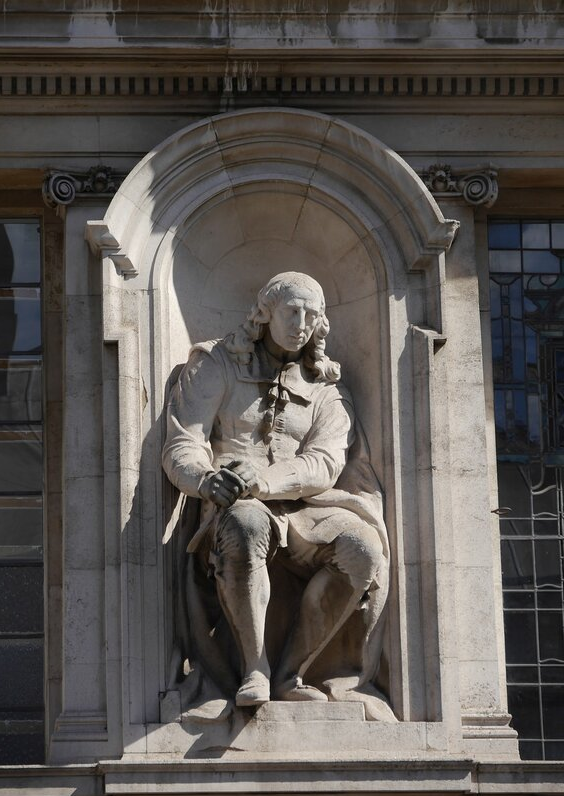Editor’s note: The following is extracted from On, by Hilaire Belloc (published 1923).
If you were to seek for the most irrational of all appetites, the one appetite for which you could not give any sort of reason, you would find it to be the strongest appetite of all: the appetite for posthumous fame.
Milton made a little fortune (in the literary sense of that word—and my fellow-hacks will know what sort of fortune that is) by calling it the last infirmity of noble minds. It is a very true saying, not only in its direct sense but in its implication. It is not only true that men who have conquered every other appetite hardly conquer this one; it is also true that there is something divine about the desire for fame, infirmity though it be. The mind remains well noble though still fully possessed of such a desire.
But explain the love of fame you cannot. It would be explicable if there were implanted in the mind of man everywhere and at all times a certitude, as strong as our certitude of the universe about us, that the individual soul survived death with a full, conscious, and continuous memory, and, on the top of that, would be more interested in what was going on here than in what was going on in its own place. No such certitude has been granted to man. On the contrary, those who hold the doctrine of immortality hold it as a special revelation and defend it perilously. The mass of men have been very vague or sceptical or negative about the whole affair. And as to the second part of the proposition, the idea that, even granted this personal, conscious and continuous survival, the soul would be more interested in things happening here on earth than in the things of its own place, no one has ever dreamt or could dream of saying anything so absurd. The farthest to which St. Augustine went (and he went as far as anybody) was to say that the soul, however blessed, retained the great human affections: men hope that this is true, though it is hardly doctrine. But neither St. Augustine nor any one else (that I know of) ever pretended that the damned or beatified soul was worrying about what Smith, Jones and Robinson thought about some verse it had produced, or was chagrined by their neglect—after it had got rid of the limitations of this world. Why, one does not even bother at fifty about what people may be saying of one’s work at twenty-five. Most of us would rather it were forgotten, and some of us actually suppress it at great expense: buying up the first edition and leaving strict injunctions in our wills that any immature stuff shall not be reprinted after our death.
If this is our attitude towards a little development in the little space of half a little mortal life, what do you suppose old Homer cares, or the ever young Theocritus?
I say “young Theocritus.” The adjective gives me pause. How old was he when he died? His verse was young … yes!… but I have, at the moment of writing, no knowledge at all of the date when that remarkable littérateur gave up his trade. Bear with me a moment while I look it up in a book of reference.
* * * * *
I find in my book of reference that he was born about 300 B.C., and that “he lived for a long time” at the Court of Alexandria. But my book does not tell me how long that “long time” was. Which reminds me of the parish priest of whom the story goes that he preached his sermon from this text: “Methuselah lived nine hundred and sixty-nine years and he died.” He first quoted the text, then made a solemn pause, then added: “I have nothing more to say,” and left the pulpit—a model to the rest of his order.
Anyhow Theocritus is dead, and he wrote in a very young fashion. But he would be a bold man who should say that Theocritus is caring now either for what I am writing about him here, or even for that magnificent sentence which Andrew Lang constructed in praise of him when he spoke of the “many-coloured flame of Theocritus.”
No. The thing is inexplicable. On the other hand, it is extremely useful, as are hunger and thirst and several other little things of the same sort. It is useful to the end of the works of man. If it were not so, what works would man perform at all?
There was a school which had half a dozen adherents in London, and two or three in Paris, genuinely attached to it (and many thousands repeating its formulæ insincerely), and this school said that the artist worked for his own sake or for the sake of art. Heaven knows their productions might have persuaded us even of that impossible theory. They were so bad; so very bad. But the artist, as we all know, does not work for the sake of art, still less for some secret pleasure of his own. He has that pleasure in working. He admires the chance which guides his hand. But his driving motive is fame. It is the driving motive, also, of all the failures—that is, of the great mass of men. And you have this ridiculous paradox about it, that immediate fame is everywhere suspected. Men everywhere have the uneasy sensation that if they are too much praised before death, they will hardly be sufficiently praised afterwards. And it is the longer praise afterwards that they seek. Endurance between the lips of men: The monument of the mind. That is, a fame of which they will know nothing, or for which, even if they know of it, they will hardly care. The poet says (at it again!)—
But in that part of Heaven where silent stand
The still remembering spirits, hearken down,
And warm again with home to hear the land,
To hear the land alive with your renown.
Nor peace nor strength nor laughter could I give
But these great wages: after death to live.
Not a bit of it. Even if he pulled it off, the poet, he only added a little incense to a great cloud of glory and only a little note to an enormous chorus. He only added a human thing to blessedness beyond the scale of mortality; like a child who offers a little toy as a present to his elders.
But there the appetite is—a spur to man and an excellent food for irony.
The best thing, perhaps, in that book full of good things called “Seven Men,” which Mr. Max Beerbohm wrote, is the picture of the poet who has sold his soul to the devil for a chance of looking up, in the British Museum, references to his work made a hundred years after his death. He finds one only reference (you will remember), and that in the shape of a casual allusion made, not in connection with his own work at all, but with another man’s work—and in phonetic spelling to boot!
Ronsard brutally faced the problem and got out of it by a lie, or rather by a quirk. He asked the Muses of what profit it was that he should serve them, seeing that the Great Dead took no pleasure in their fame. To which the Muses answered him that the soul is immortal—but that is no reply. The Muses having answered thus, Ronsard goes on to say that people who are devout and religious will always write good verse.
What! Is every one that humbly does his duty and serves his God to be accounted a writer of good verse?
Or again, is no good verse to be good verse because it was written by a bad man? Why, here am I who have just been quoting Milton, a man rotten with the two worst vices: falsehood and pride, but a Poet; and for that matter, I can hardly remember one thoroughly good man who did write good verse, unless it be the author of the “Pange Lingua.”
I beg that the poets who read this may seek no quarrel with me. I am not saying that their lives are bad: I am only saying that their verse is bad. And, however bad their verse, you may lay to it that they will go on writing it, in the vain pursuit of posthumous fame. Wherein they resemble those little dogs, so numerous and so diverse, which, in the year of gold (to be accurate, in the autumn of 1892) many others and I led out to Cumnor Hill, and thence sent them following in a flash after the scent of an aniseed bag till they killed nothing on the Martyrs’ Memorial at Oxford. They ran very hard, but they ran after nothing: and so it is with the poets, and fame is but a savour and an air.










It is good and noble to build or create something worthwhile for which you will be well remembered. To be an example to future generations. To plant the tree whose shade you will never enjoy and thereby ispire others to do the same.